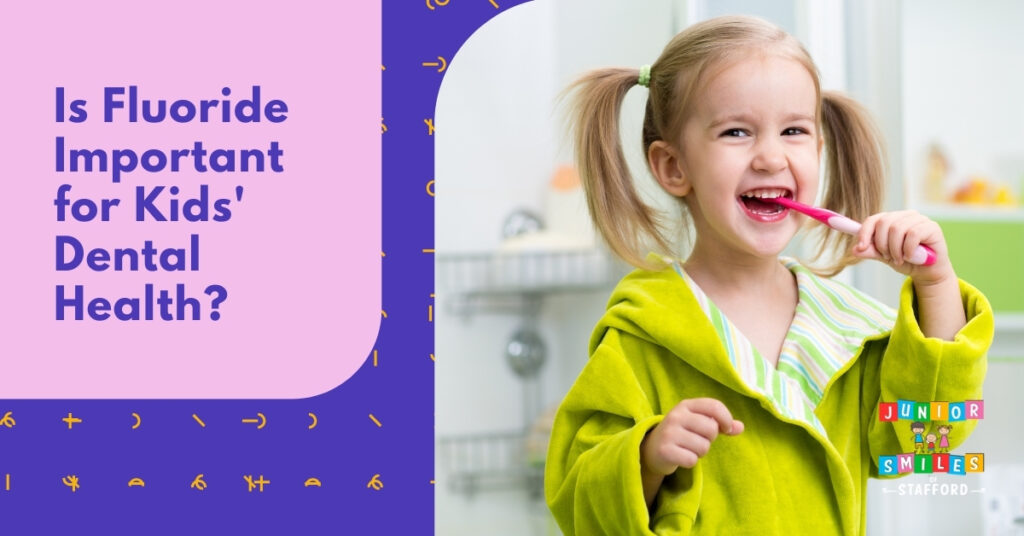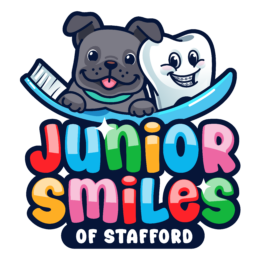Is Fluoride Important for Kids’ Dental Health?

Fluoride’s role in children’s dental health is often a topic of discussion among parents. In this blog post, we delve into why fluoride is considered a cornerstone of dental care for kids. We’ll explore its benefits, such as cavity prevention and enamel strengthening, and address common concerns regarding its usage. Understanding the importance of fluoride can help parents make informed decisions about their child’s oral health regimen.
Understanding Fluoride and Its Role in Dental Health
What is fluoride?
Fluoride is a mineral that occurs naturally in many foods and water. It is also commonly added to dental products and public water supplies to help prevent tooth decay. Fluoride works by strengthening the enamel on teeth, making them more resistant to the acid that can cause cavities. However, excessive fluoride intake can lead to dental fluorosis, a condition that causes white spots to appear on the teeth. It’s important to use fluoride dental products as directed and to monitor fluoride intake from other sources, such as water and certain foods.
How does fluoride benefit dental health?
Fluoride plays a crucial role in maintaining good dental health, especially in children. It helps to strengthen tooth enamel, making it more resistant to acid attacks from plaque bacteria and sugars in the mouth. This, in turn, helps to prevent cavities and promotes overall oral health.
The role of fluoride in preventing cavities
Fluoride helps to prevent cavities by remineralizing areas of the teeth that have been attacked by acid, thus reversing early signs of tooth decay. It also inhibits the growth of bacteria that contribute to tooth decay.
Fluoride Sources for Children
Fluoridated water
One of the most significant sources of fluoride for children is fluoridated water. Many communities add fluoride to their water supplies as a public health measure to help reduce tooth decay. Drinking fluoridated water can significantly contribute to the prevention of cavities and the maintenance of good oral health.
Fluoride toothpaste
Using fluoride toothpaste is another essential way to ensure that children receive the benefits of fluoride. The American Dental Association (ADA) recommends using fluoride toothpaste as soon as the first tooth appears. For children under three years old, a smear of fluoride toothpaste the size of a grain of rice is recommended, while a pea-sized amount is suitable for children aged three to six.
Professional fluoride treatments
In addition to fluoridated water and toothpaste, professional fluoride treatments provided by a dentist can further enhance a child’s dental health. These treatments involve the application of a highly concentrated fluoride gel, foam, or varnish to the teeth, providing an extra layer of protection against cavities.
Ensuring Safe and Effective Fluoride Use for Kids
Recommended fluoride intake for children
The American Academy of Pediatrics (AAP) and the American Academy of Pediatric Dentistry (AAPD) recommend that children receive an appropriate amount of fluoride for optimal dental health. The recommended fluoride intake varies based on a child’s age and the level of fluoride in their drinking water.
Potential risks of excessive fluoride intake
While fluoride is essential for dental health, excessive intake can lead to dental fluorosis, a condition that affects the appearance of the tooth enamel. To prevent this, it’s crucial for parents to monitor their children’s fluoride intake and ensure they are not exposed to excessive amounts of fluoride from multiple sources.
Tips for safe and effective fluoride use in children
To ensure safe and effective fluoride use, parents should supervise their children while brushing to minimize the risk of swallowing toothpaste. Additionally, they should consult with a dentist to determine the most appropriate fluoride intake for their child based on their individual needs.
Incorporating Fluoride into Children’s Dental Care Routine
Establishing good oral hygiene habits
Incorporating fluoride into a child’s dental care routine goes hand in hand with establishing good oral hygiene habits. This includes brushing teeth twice a day, flossing regularly, and maintaining a healthy diet low in sugary foods and drinks.
Importance of regular dental checkups
Regular dental checkups are essential for monitoring a child’s dental health and ensuring that they are receiving adequate fluoride. Dentists can also provide professional fluoride treatments and offer guidance on maintaining good oral hygiene practices at home.
Educating children about the benefits of fluoride
Educating children about the importance of fluoride in preventing cavities and maintaining strong, healthy teeth can help them understand the significance of incorporating fluoride into their daily dental care routine. This can be done through age-appropriate discussions and demonstrations of proper brushing techniques.
Get Fluoride Treatment for Your Kids at Junior Smiles of Stafford
Fluoride plays a vital role in children’s dental health by preventing cavities and promoting strong, healthy teeth. By ensuring that children have access to fluoridated water, using fluoride toothpaste, and seeking professional fluoride treatments when necessary, parents can help their children maintain optimal oral health.
For personalized advice and expert dental care tailored to your child’s needs, consider scheduling an appointment with Junior Smiles of Stafford. Our dedicated team prioritizes your child’s dental health, offering comprehensive care in a friendly and welcoming environment.
To begin your journey towards optimal dental health for your child and to receive guidance on fluoride use and other dental concerns, don’t hesitate to contact us. Reach out to Junior Smiles of Stafford today – where every smile tells a story, and we’re here to ensure it’s a healthy one.
Read Next: Top 10 Dental Care for Babies

